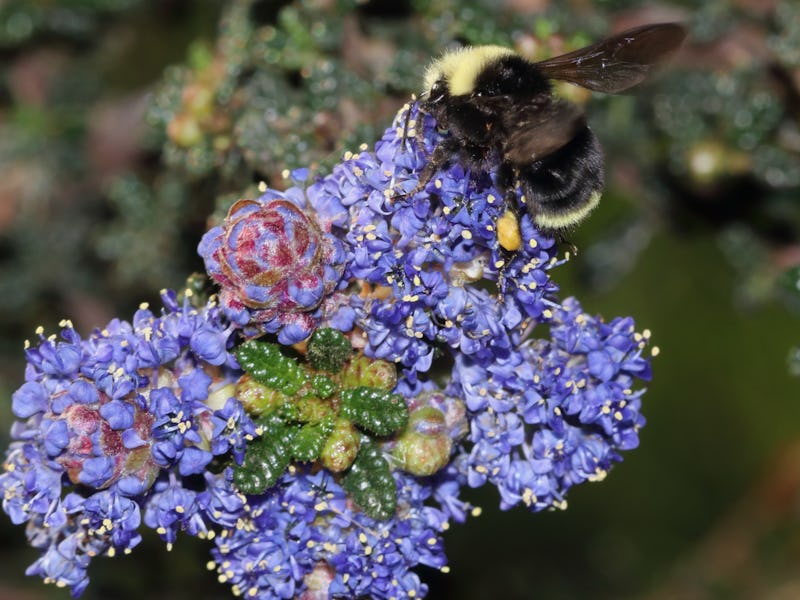Why 2018's "Pollen Tsunami" is Especially Terrible for Allergies
You're not imagining it.

Springtime … this guy fucks! Seriously, though. Pollenating plants are stupidly horny this year, which immunologists and allergists say could be related to the strange weather patterns across America this winter.
Constantly shifting temperatures across the country, coupled with some very snowy months, might have created the perfect conditions for a longer and more intense allergy season. Immunologists say that high levels of carbon dioxide in the atmosphere is ramping up pollen production as well.
“This winter’s relatively warm average temperatures, coupled with back-to-back snowstorms, may be an equation for a pollen ‘tsunami,’” New Jersey immunologist Stacey Galowitz tells Healthline.
Pollen up-close
Typically, trees kick off springtime allergy season. There’s some semblance of order. But since temperatures switched so sharply from winter to spring, maple, birch, oak, and other trees pollenated at once. There was no easing-in to allergy season — just an onslaught of plant sexing.
“We had a prolonged winter, and so I think what you’re seeing is that since spring came all at once, that the pollen is kind of being condensed and tree pollen is being condensed into a shorter period of time,” John V. Bosso, the director of the Otorhinolaryngology Allergy Clinic at Penn Medicine, tells Philly Voice.
Allergy sufferers shouldn’t worry too much, though: just because the last few weeks have been rough doesn’t mean this allergy season will last longer. Though weird weather might have created a situation for many plants to pollenate at once, that doesn’t necessarily mean they’ll pollenate for a longer period of time.
If you’re struggling with allergies, there are plenty of over-the-counter options to try, including Benadryl, Zyrtec, Claritin, and Allegra. Nasal sprays have also proven to be very effective in providing allergy relief, since they go directly into the nasal cavity. Eye drops can also help with irritation, but those struggling even with the help of OTC medications should consult an allergist.
Hopefully, this allergy season ends quicker than our winter on the East Coast. Until then, shield your eyes from the sex-having trees that want us all to suffer so they can reproduce. We get it, trees. Get a room.